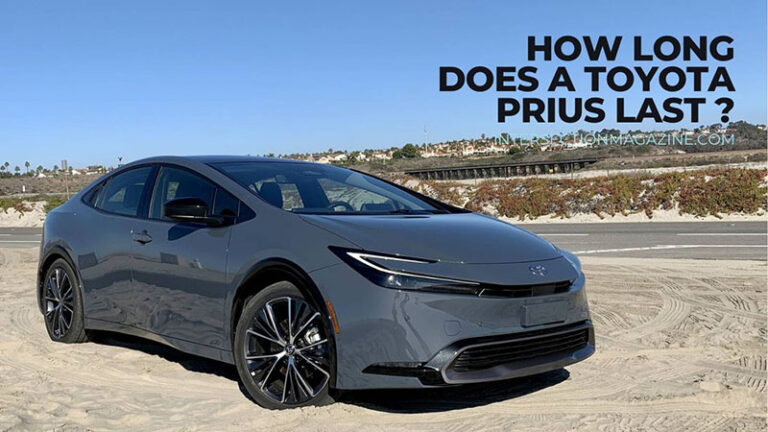In recent years, the Toyota Prius has earned a reputation not only as a pioneering hybrid vehicle but also as one of the most durable cars on the market. This durability comes from a fascinating interplay of engineering sophistication and light-footed maintenance. You may have noticed older models of the Prius still zipping around cities and towns, defying the conventional life expectancy of typical vehicles. So, how long exactly can you expect a Prius to last? The answer is not merely a number; it encompasses various factors that contribute to its longevity.
At the core of the Prius’s durability is its unique hybrid system. Unlike traditional gas-only vehicles, hybrids like the Prius combine an internal combustion engine with an electric motor, leading to decreased wear and tear. The electric motor takes up some of the workload, especially during stop-and-go traffic, which can be especially harsh on standard engines. This synergy not only enhances fuel efficiency but also significantly prolongs the engine life. Consequently, many Prius owners report that their vehicles easily surpass the 200,000-mile mark, with several even achieving upwards of 300,000 miles with diligent care.
One reason for the immense fascination with Prius longevity is its economic viability. Given the high cost of new cars, many drivers are looking for vehicles that offer better value over time. The Prius has consistently proven that it can go the distance, which makes it a more prudent financial choice. As fuel prices fluctuate and environmental awareness grows, the Prius delivers a compelling package: lower running costs and a longer lifespan, making it a darling of budget-conscious car owners.
Moreover, the reputation for durability extends well beyond just the engine. The overall construction of the Prius is meticulously designed to withstand the rigors of everyday use. The materials employed in the Prius, often advanced composites, are engineered for resilience. Not only does this promote a longer vehicle life, but it also assists in maintaining the aesthetics of the car over time. Many veteran Prius owners will attest to the fact that after years of ownership, their vehicles display minimal wear in comparison to many counterparts.
Yet, structural integrity is just one piece of the puzzle. Maintenance plays a pivotal role in ensuring the Prius reaches its potential lifespan. Regular servicing, like oil changes, tire rotations, and brake inspections, can significantly enhance vehicle longevity. Fortunately, the Prius’s hybrid technology often translates to less frequent maintenance than traditional cars; however, it is crucial not to neglect essential checks. Some owners may fall into the trap of underestimating the significance of these services, leading them to overlook minor issues that could escalate over time.
Another factor that many might overlook is the role of the battery. The hybrid battery is often cited as a primary concern for potential buyers. However, advancements in technology have significantly improved the lifespan of these batteries. Modern Prius models feature more robust batteries equipped with better thermal management systems, meaning they’re designed to last for an impressive 10 to 15 years or approximately 150,000 to 200,000 miles, depending on usage and care. The replacement battery, while a significant investment, can breathe new life into the vehicle, allowing long-time owners to enjoy many additional years on the road.
Driving habits and environmental conditions also substantially influence the durability of a Prius. Engaging in smooth and gentle acceleration, maintaining consistent speeds, and avoiding abrupt stops can all contribute to extending the life of the car. Furthermore, residing in a temperate climate aids overall vehicle longevity. Extreme temperatures can affect battery life and other components negatively, emphasizing the importance of driving habits and location in this equation.
The popularity of the Prius is indicative of societal trends and an evolving relationship with automobiles. People are increasingly looking for alternatives that not only serve as a mode of transportation but also reflect their values regarding sustainability and economic responsibility. In this sense, the Prius represents more than just a car; it is a symbol of mindfulness and conscientious living. This deeper connection is perhaps why so many drivers feel a sense of pride in their Prius, as it embodies a commitment to a durable, economical lifestyle.
As we consider the myriad factors influencing the lifespan of a Prius, it becomes clear that simply asking how long it will last doesn’t tell the full story. The answer involves understanding the vehicle’s engineering, the owner’s approach to maintenance, and their driving habits. With dedication and care, the Prius can become not just a long-term vehicle but also a wise investment that rewards its owner with miles of reliable service.
Ultimately, the Toyota Prius is a remarkable automobile that has redefined expectations surrounding hybrid vehicles and durability. Whether you clock in 100,000 miles or 300,000 miles, the emphasis on longevity is a cornerstone of the Prius legacy. It’s an intriguing blend of tradition and innovation, a vehicle that patiently showcases how a car can age gracefully while still being modern, efficient, and, above all, dependable.
